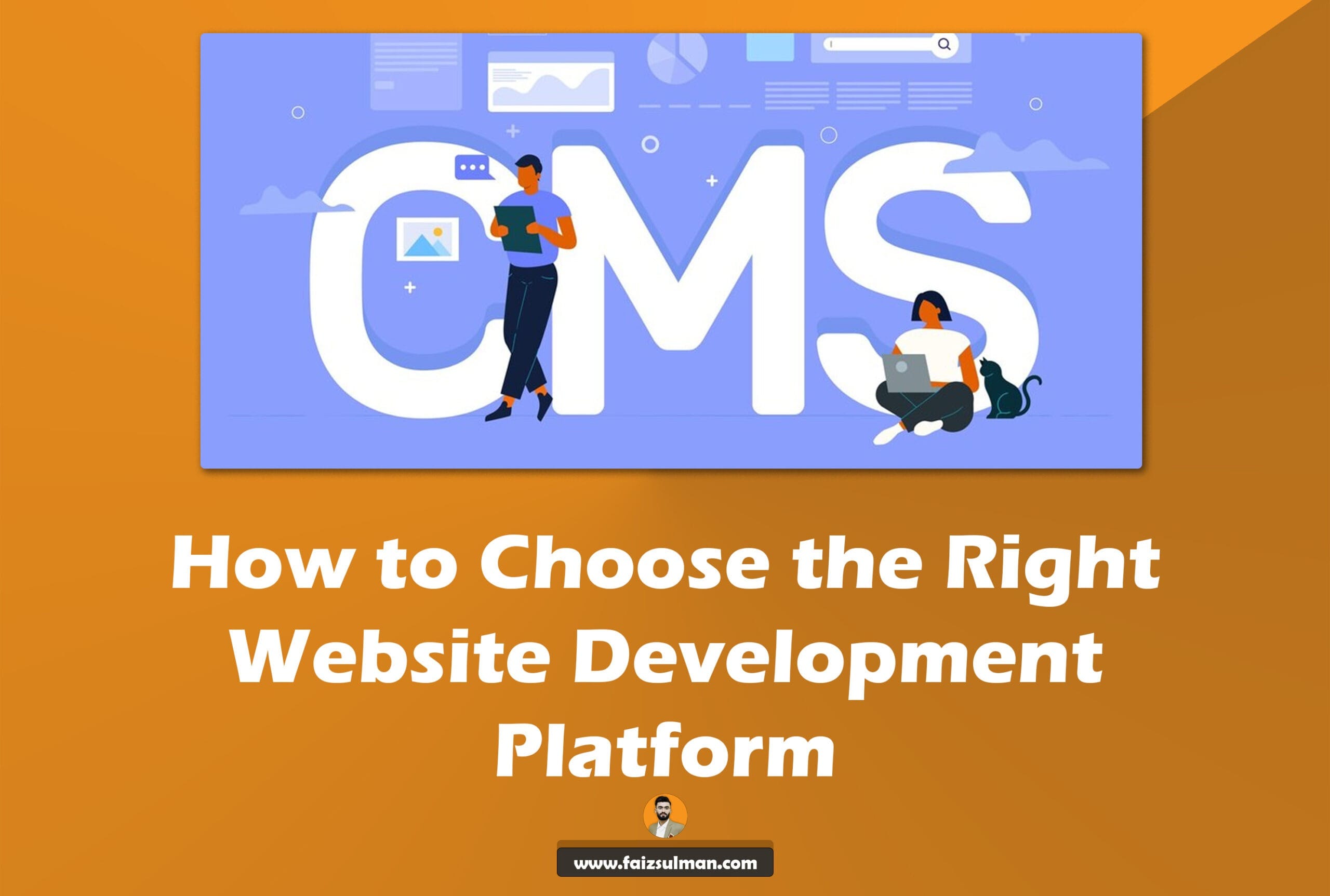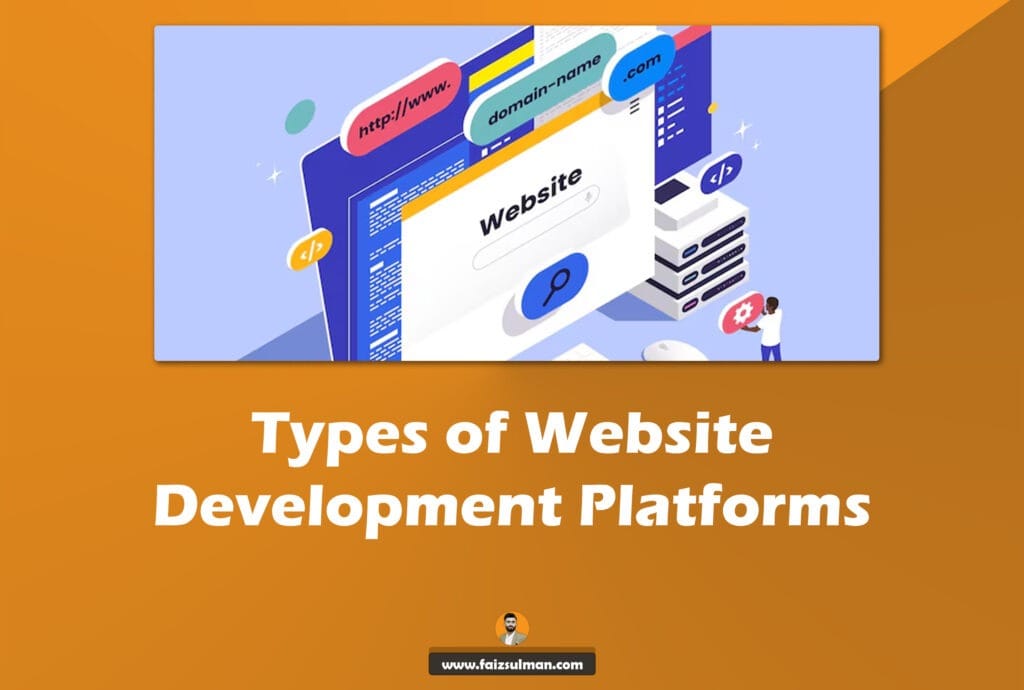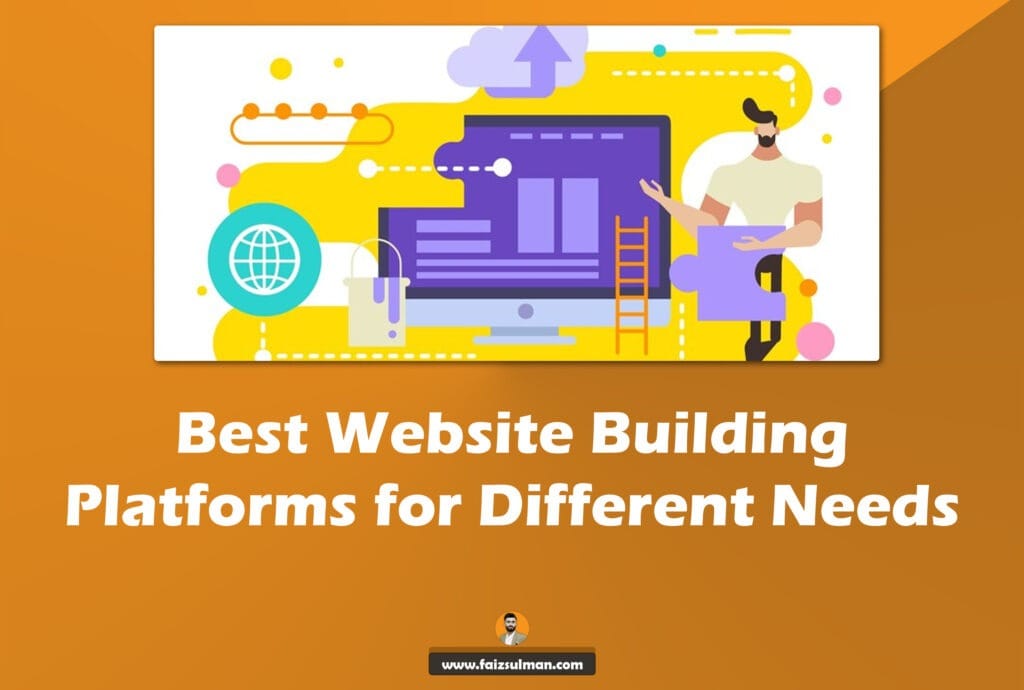How to Choose the Right Website Development Platform


-
Written by
faizsulman-com
-
Category
Web Development, Blog, WordPress
-
Date
23 September 2024
How to Choose the Right Website Development Platform
In today’s digital age, selecting the right website development platform can determine the success or failure of your online presence. But how do you choose among the myriad of options available? With an overwhelming number of tools, each claiming to be the best website building platform, it’s easy to feel lost. Whether you’re building an e-commerce site, a personal blog, or a corporate hub, this guide will help you make an informed decision. What should you look for in a platform? How do you align your business goals with technical features? Let’s dive in!
Understanding Your Needs: What Do You Want From Your Website?
Before you dive into specific platforms, take a moment to reflect on what you want your website to achieve. Is it a portfolio showcasing your creative work? Or a full-scale e-commerce site with thousands of products? Knowing your website’s purpose will significantly narrow down your options.
- Business Goals: What is the primary goal of your website? Whether it’s driving sales, capturing leads, or simply sharing information, each platform serves different purposes.
- Audience: Who will visit your site? An intuitive interface is key for users who may not be tech-savvy.
- Growth Expectations: Will your website grow in complexity over time? Planning for scalability ensures that you won’t outgrow your platform too soon.
Choosing the best website development platform starts with understanding your fundamental needs.
Types of Website Development Platforms: A Breakdown

There’s no one-size-fits-all when it comes to website development platforms. Each one offers unique benefits and drawbacks, making it essential to understand the primary types available today.
- Content Management Systems (CMS):
Platforms like WordPress, Joomla, and Drupal dominate the CMS landscape. A CMS is ideal if you want a highly customizable and scalable website. Pros:
- Flexibility: Modify the design and functionality with thousands of plugins.
- SEO-Friendly: CMS platforms generally offer robust SEO tools.
- Content Management: Perfect for blogs, news sites, and portfolios. Cons:
- Learning Curve: Some technical skills are required, especially with platforms like Drupal.
- Regular Maintenance: Frequent updates and security checks are needed.
- Website Builders:
Tools like Wix, Squarespace, and Weebly fall into this category. They offer drag-and-drop interfaces for those looking to launch a website quickly without technical know-how. Pros:
- User-Friendly: No coding experience required.
- Fast Setup: Perfect for those who want to get a site online fast.
- Templates: Dozens of professional templates make designing easy. Cons:
- Limited Customization: Compared to CMS platforms, website builders offer less flexibility.
- Scalability: They may not be suitable for large-scale, complex websites.
- E-commerce Platforms:
If your website’s primary function is to sell products online, platforms like Shopify, BigCommerce, or WooCommerce (which integrates with WordPress) are your best bet. Pros:
- Optimized for Sales: These platforms provide everything from product listings to secure checkout processes.
- Payment Integration: Most e-commerce platforms have built-in payment processors.
- Analytics: Track sales, customer behavior, and more. Cons:
- Cost: E-commerce platforms usually charge transaction fees or subscription fees.
- Complexity: For those with large inventories or global reach, these platforms can become complicated to manage.
- Custom Development:
If your website requires unique features, a custom-built platform might be necessary. This involves hiring a web developer to create a tailored website from scratch. Pros:
- Ultimate Flexibility: You can build anything you need.
- Scalability: Custom sites grow with your business. Cons:
- Expensive: Custom development can be costly.
- Time-Consuming: Building from scratch takes much longer than using pre-built platforms.
Key Features to Consider When Choosing a Platform
Now that you understand the types of platforms, it’s time to delve into the specific features that you should prioritize.
- Ease of Use:
Are you comfortable with coding? If not, platforms like Wix or Squarespace may be your best option. However, if you’re tech-savvy and need flexibility, WordPress or Drupal could be more suitable. - SEO Capabilities:
A website without good SEO is like a storefront in the middle of nowhere. Platforms like WordPress and Shopify offer robust SEO tools out of the box, while others may require additional plugins or third-party apps. Prioritize platforms with built-in SEO features such as customizable meta tags, fast load times, and mobile responsiveness. - Mobile Optimization:
With over half of web traffic coming from mobile devices, it’s crucial to choose a platform that automatically optimizes your website for mobile use. Squarespace, for example, excels in creating stunning mobile-friendly designs. - Customization and Flexibility:
The ability to tailor your website’s design and functionality is critical. WordPress offers thousands of plugins, allowing you to add almost any feature you can think of. Wix and Weebly provide drag-and-drop customization but with limited scope compared to CMS platforms. - Security:
Security is often overlooked when choosing a platform, but it’s crucial, especially for e-commerce sites. Platforms like Shopify come with built-in SSL certificates and secure payment gateways. If you’re using a CMS like WordPress, make sure to install security plugins and regularly update your site to avoid vulnerabilities.
Best Website Building Platforms for Different Needs

Let’s take a closer look at some of the top platforms, tailored for specific needs:
- WordPress – Best for Bloggers and Content Creators:
WordPress powers over 40% of the web, and for good reason. It’s flexible, powerful, and endlessly customizable. Perfect for blogs, portfolios, and news sites. - Shopify – Best for E-Commerce:
When it comes to selling online, Shopify reigns supreme. It offers easy integration with multiple payment gateways, robust inventory management, and a highly secure checkout process. - Wix – Best for Small Business Websites:
Wix is ideal for small businesses looking to create a simple, professional-looking website. The drag-and-drop builder, combined with hundreds of customizable templates, makes it a favorite for non-tech users. - Squarespace – Best for Designers:
If visuals are important, Squarespace offers stunning, design-oriented templates. It’s great for photographers, artists, and designers who want to showcase their work. - Drupal – Best for Large, Complex Websites:
While it has a steeper learning curve, Drupal is perfect for large-scale websites that require custom features and extensive user management.
Final Thoughts: Which Platform is Right for You?
So, how do you decide which website development platform is right for you? It boils down to your specific needs and goals. Ask yourself:
- Do I need flexibility, or do I want something that’s ready to go out of the box?
- Will my website grow in complexity over time?
- How important is mobile optimization and SEO to my business?
For most users, WordPress offers the best balance of customization, SEO features, and user-friendliness. If you’re selling products, Shopify might be your best option, while creatives may prefer Squarespace. By aligning your business goals with the strengths of each platform, you’ll be able to make an informed decision and set your website up for success.
In the end, the platform you choose should not only meet your immediate needs but also provide room for growth. Keep these considerations in mind, and you’ll find the perfect fit for your website!

